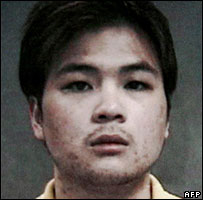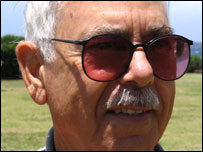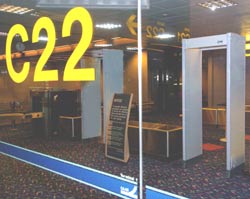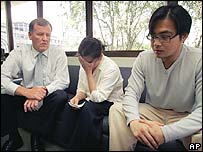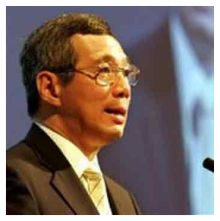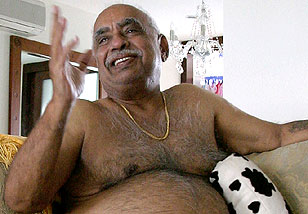November 30, 2005
Singapore's decision to execute Nguyen Tuong Van for drug trafficking is correct and responsible.
ALTHOUGH opinions in Australia are not unanimous, many Australians strongly oppose Singapore's decision not to commute the death sentence on Mr Nguyen Tuong Van for drug trafficking. I respect these views, which spring from a deep sense of human compassion. However, the outcry has also made it difficult to separate fact from fiction.
Fiction No. 1: Singapore has breached international law.
There is no international agreement to abolish the death penalty. Capital punishment remains part of the criminal justice systems of 76 countries, including in the United States, where it is practised in 38 states.
We respect Australia's sovereign choice not to have capital punishment. We hope Australia will likewise respect Singapore's sovereign choice to impose the death penalty for the most serious crimes, including drug trafficking. The overwhelming majority of Singaporeans support this.
Fiction No. 2: The death penalty has not deterred drug trafficking.
This logic is flawed. The death penalty has not completely eliminated drug trafficking, but it has certainly deterred drug trafficking. Since the introduction of tough anti-drug laws in the mid-1970s, drug trafficking and drug abuse in Singapore have come down significantly. Potential traffickers know that, once arrested, they face the full weight of the law.Fiction No. 3: Mr Nguyen is an unsuspecting victim
Mr Nguyen may not be a hardened criminal, but he is not an unsuspecting victim either. He knew what he was doing and the penalty if he was caught. Had he succeeded, he would have made a lot of money. If we let off a convicted courier because of age, financial difficulties or distressed family background, it will only make it easier for drug traffickers to recruit more "mules", with the assurance that they will escape the death penalty.
Fiction No 4: The punishment does not fit crime.
Mr Nguyen was caught with 396 grams of pure heroin, enough for 26,000 "hits", with a street value of more than $A1 million.
Yes, he was transiting Singapore, and not smuggling drugs into the country, but Singapore simply cannot afford to allow itself to become a transit hub for illicit drugs in the region.
Fiction No. 5: Mr Nguyen can testify against Mr Bigs.
All drug syndicates assume that some of their couriers will get caught. They never let the couriers know enough to incriminate themselves. The information that Mr Nguyen provided to the Singapore authorities was of limited value, and was, in fact, intended to mislead and delay the investigation.
Fiction No. 6: Singapore connives with drug lords.
This is an old falsehood propagated by Dr Chee Soon Juan (Singapore opposition leader). He has alleged that the Singapore Government had invested in projects in Myanmar (Burma) that supported the drug trade. When this first surfaced in 1996, the Singapore Government explained that its investment in the Myanmar Fund was completely open and above board. The fund held straightforward commercial investments in hotels and companies. Other investors in the fund included Coutts & Co, an old British bank, and the Swiss Bank Corporation. The Singapore Government offered to set up a commission of inquiry so Dr Chee could produce evidence to prove his wild allegations. Unfortunately, Dr Chee never took up the offer.
Fiction No. 7: Singapore has treated Australia with contempt.
Singapore highly values good relations with Australia and with Australian leaders. We share a common belief in the sanctity of the law. The Singapore cabinet deliberated at length on Mr Nguyen's clemency petition. It considered all relevant factors, including Mr Nguyen's personal circumstances, and the many public and private appeals from Australian leaders. Unfortunately, finally the cabinet decided that it could not justify making an exception for Mr Nguyen. It had to treat Mr Nguyen consistently with similar past cases, and apply the law equally to Singaporeans and foreigners.
Singapore's leaders have taken pains to explain our decision to Australian leaders, both in writing and in person. Singapore's Foreign Minister had also informed Foreign Minister Alexander Downer confidentially in advance of when the family would be notified of the execution date, and explained to Mr Downer that that the family should be the first to learn of the execution date. So when Singapore's Prime Minister, Lee Hsien Loong, met Prime Minister John Howard in Busan, he could not inform Mr Howard of the execution date either. Mr Lee did not know that the letter of notification had by mistake already been delivered to Mrs Kim Nguyen, one day early. Once Mr Lee discovered what had happened, he promptly apologised to Mr Howard.
Australians who oppose the death sentence on Mr Nguyen will not agree with everything I have said. But I hope they will accept that the Singapore Government has a responsibility to protect the many lives that would otherwise be blighted and destroyed by the drug syndicates, and to prevent Singapore from becoming a conduit for illicit drugs in the region. We are all touched by the pain and anguish of Mr Nguyen's mother, but if we waver in our firm position against drug trafficking, many more families will be shattered.
Joseph K. H. Koh is Singapore high commissioner in Australia.
